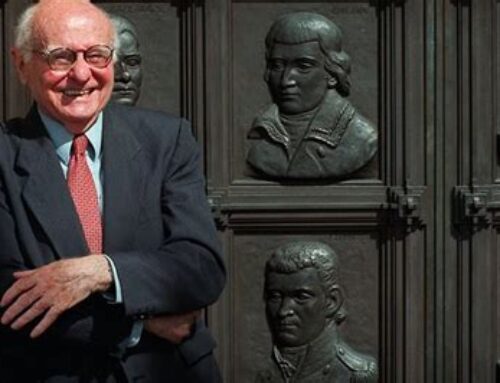Newton, Einstein, and Bohr argued for different understandings of time. When we look back on 2020, at what feels like an historical Black Swan, we should ask ourselves, ‘which understanding of time is most appropriate for our social reality: Classical, Relative, or Quantum?’
As 2020 draws to a close, it’s worth revisiting the year that was and reflecting on the lessons learned – or not:
“One by one neighborhood lanes emptied of traffic as the epidemic spread. Residents stayed indoors as much as possible, sealed their windows… The shrunken core of courtiers and professionals in Westminster and the members of the city’s merchant guilds knew they would be handed a gigantic bill for relief of the sick and unemployed in the coming weeks… [The mayor] spread the word for healthy citizens to stay indoors after dark so that shut-up families could come out for air and exercise… trade sped the contagion’s spread…”
You’d be forgiven for thinking these are lyrical musings on COVID, published sometime this year. Actually, these lines were written in 2004 about an event that took place three hundred and fifty years ago. The parallels between the Great Plague of London in 1666 and the London of 2020 under the Coronavirus pandemic are profound. Add to this the curiosity that the United States is returning a man to the White House who left its halls a mere four years ago, bringing with him a familiar coterie of cabinet and administrative staff. It certainly concentrates the mind upon the question of time. Notably, since the Great Plague, our understanding of time has undergone two great revisions: from classical time to relative time, and from relative time to quantum time. I’d like to explore which concept of time applies best to our actual experience of reality, and ask the question: time, what time?
For centuries, time was considered an objective standard for the universe. If it was midday here on earth, it was midday on the moon, and midday on any planet orbiting any star. Time was time everywhere in the universe. Simple. Then, along came Einstein who had an interesting thought as he looked out his tram carriage at a Swiss clock tower disappearing in the distance. Surely it takes ‘longer’ for time to reach you the further away from the clock you are? This insight led Einstein to his theory of relativity: time is a relative phenomenon depending on where you stand. Between the earth and some planet in the Centauri system is an expanse of space-time. The fabric of the universe has both temporal and spatial dimensions. We measure distance as space and time.
Less than twenty years after Einstein had his epiphany, those roguish quantum physicists came along and upset the apple cart. Niels Bohr and Werner Heisenberg noted that to be able to measure the physical state of a sub-atomic particle and perform probabilistic calculations, you have to disregard questions of space and time. Because, if you take due consideration of space-time, relations of uncertainty fundamentally disturb the system, thus rendering predictions meaningless. Niels Bohr explained the situation like this, in 1927:
“the definition of the state of a physical system, as ordinarily understood, claims the elimination of all external disturbances. But in that case, according to the quantum postulate, any observation will be impossible, and, above all, the concepts of space and time lose their immediate sense.”
This brings us back to the question of time in a social setting. Is time best understood as classical, relative, or quantum?
In the near-term, 2020 will be superficially described from a ‘Western’ perspective as the year of COVID, the year of Black Lives Matter, or both. These two phenomena swept across our nations, had a meaningful impact, and can be considered broadly shared experiences. As it stands, these events will be described according to a relative conception of time, i.e., as occurring within space-time. The COVID pandemic is something that ‘happened’ in 2020, but is processed within its particular context. This squares with Einstein’s description of time: it depends on where you’re standing. The United Kingdom had its specific experience of COVID, Australia another, and the United States a third – each with unique characteristics, meriting a UK-, Australia-, and US-specific approach, respectively. While this approach is arguably more useful than simply saying global populations experienced the same COVID event everywhere at the same time (which would conform to a classical view of time), it is nevertheless deeply flawed. I argue a quantum view of time would be far more useful to understand our present pandemic, and thus, far more powerful for generating policy prescriptions.
What would a quantum view of time look like?
A quantum view of time suggests that time and space lose their ‘immediate sense.’ This doesn’t mean that time and space don’t exist, or that time and space don’t matter. It simply means when considering an event, the immediate time-space location is unhelpful to the analysis. How would you examine the COVID pandemic without an immediate sense of time and space? In the Great Plague of 1666 we find an epidemic, a densely domiciled population, an economy reliant on trade, a government seeking to provide relief, succour and an end to the disaster. This is not to say that 1666 and 2020 are interchangeable. The quantum approach to time, however, helps us avoid re-inventing the wheel each generation.
The hubris of humankind invites us to repeat the same mistakes over and over again. Reflecting on the Great Plague, we see that in 2020 we have done little better than our mediaeval counterparts. In the seventeenth century, as now, the poor bore the brunt of the burden, elites made off like bandits, and leaders, when not acting with heavy hands were forever befuddled by the epidemic. Doubtless, the idea of leper colonies or barges where the sick languish offshore seems unreal and remote. But what better way to describe the ring-fenced suburbs of Melbourne in June, or those Carnival Cruise shipsdenied refuge in April?
The failure to learn from the past could be tempered by a quantum approach to time. 2020, therefore, should not be understood as the year of COVID, but rather, yet another year of epidemic. With a quantum approach to time, the COVID pandemic might have begun with the lessons of 1666 in hand:
1) Be mindful of heavy-handed approaches. This might have led to targeted mitigation and suppression;
2) Be mindful of the poor. This might have prioritised fiscal and healthcare support for those most vulnerable;
3) Be mindful of crisis profiteering. This might have led to specific taxation targeting those actors benefiting disproportionately from the calamity;
4) Be mindful of what is working. This might have allowed us to course correct rather than throw good money after bad.
We need to get out of the mindset: ‘that was then and this is now.’ This simply isn’t true.
We were humans then, we’re humans now. Elites wield the same economic and political power over the masses as they ever have. Unexpected events continue to throw our delicately balanced systems into chaos. History isn’t history as we know it. Time isn’t time as we think of it. Substantively, we live the same lives as the humans of 1666, despite our technological advances. In the great theatre of life all that changes are the costumes. The relative understanding of time simply isn’t helpful if we aim at the kind of progress we imagine ourselves capable of. To change the script, we would be far better served by embracing a different concept of time. Time, what time? Quantum time.







Leave a Reply